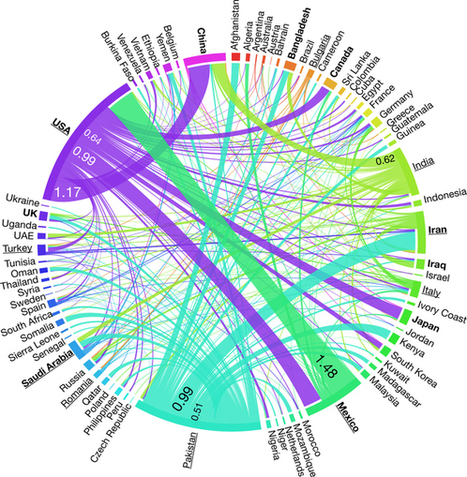Recent hydrological modelling1 and Earth observations2, 3 have located and quantified alarming rates of groundwater depletion worldwide. This depletion is primarily due to water withdrawals for irrigation1, 2, 4, but its connection with the main driver of irrigation, global food consumption, has not yet been explored. Here we show that approximately eleven per cent of non-renewable groundwater use for irrigation is embedded in international food trade, of which two-thirds are exported by Pakistan, the USA and India alone. Our quantification of groundwater depletion embedded in the world’s food trade is based on a combination of global, crop-specific estimates of non-renewable groundwater abstraction and international food trade data. A vast majority of the world’s population lives in countries sourcing nearly all their staple crop imports from partners who deplete groundwater to produce these crops, highlighting risks for global food and water security. Some countries, such as the USA, Mexico, Iran and China, are particularly exposed to these risks because they both produce and import food irrigated from rapidly depleting aquifers. Our results could help to improve the sustainability of global food production and groundwater resource management by identifying priority regions and agricultural products at risk as well as the end consumers of these products.

|
Scooped by Complexity Digest |



 Your new post is loading...
Your new post is loading...







Whoa!